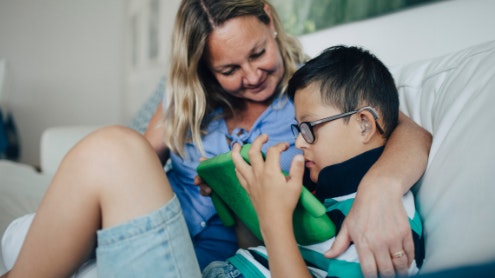Homepage
•
Learning Library
•
Blog
•
6 Ways Parents Can Foster Good Technology Habits
Expand breadcrumbs
Expand breadcrumbs
- Learning Library
- Blog
- 6 Ways Parents Can Foster Good Technology Habits
- Homepage
- •
- Learning Library
- •
- Blog
- •
- 6 Ways Parents Can Foster Good Technology Habits
6 Ways Parents Can Foster Good Technology Habits
By Carl Hooker
May 3, 2021








